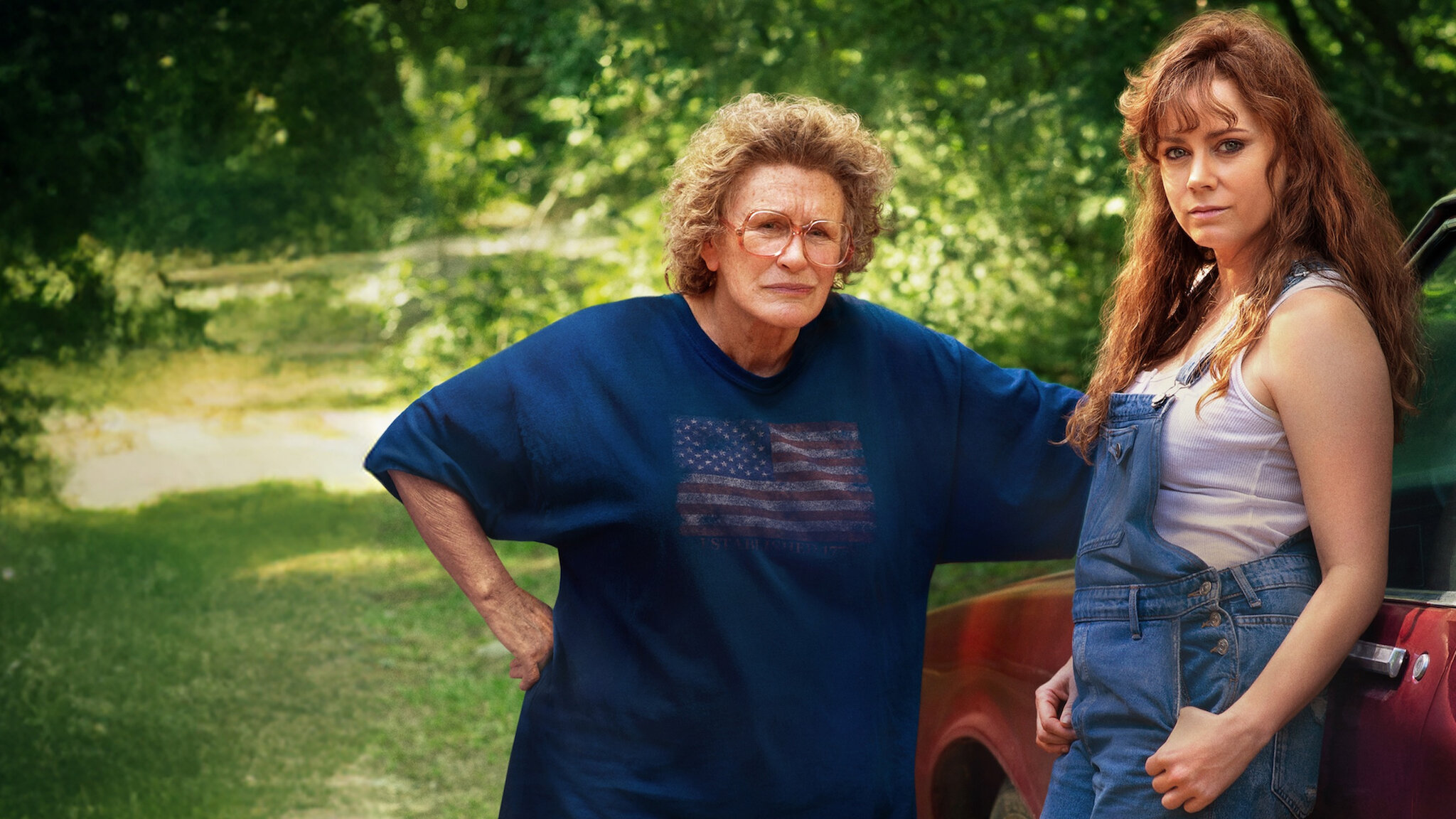Hillbilly Elegy (2020)
Hillbilly Elegy, directed by Ron Howard and based on the bestselling memoir by J.D. Vance, is a biographical drama that explores themes of poverty, addiction, family, and personal perseverance. The film stars Gabriel Basso as J.D. Vance, with Amy Adams as his troubled mother Bev and Glenn Close as his strong-willed grandmother Mamaw.

The story unfolds in a nonlinear narrative, alternating between J.D.’s childhood in a struggling Appalachian family and his adulthood as a Yale Law School student. As the adult J.D. prepares for a crucial job interview that could change his future, he is pulled back into his past when he receives a call: his mother, Bev, has overdosed on heroin.

J.D. rushes back to his hometown in Middletown, Ohio—a former manufacturing community grappling with economic decline—to deal with the crisis. This visit forces him to confront painful memories of growing up in a chaotic household marked by his mother’s cycle of drug abuse, unstable relationships, and emotional outbursts.

Through flashbacks, the film reveals J.D.’s complicated upbringing. Bev, once a nurse with potential, spirals into addiction and erratic behavior, often exposing her children to trauma and neglect. Amid this turmoil, J.D. finds a source of stability and tough love in his maternal grandmother Mamaw, a sharp-tongued, fiercely protective woman who becomes the anchor in his life. Mamaw pushes J.D. to rise above his circumstances, instilling in him a sense of self-worth and resilience.
The film portrays J.D.’s inner conflict as he tries to balance his Appalachian roots with his aspirations in the elite world of law and politics. Ultimately, J.D. must decide whether to stay tethered to the past or move forward toward a better future—while honoring the people who helped him survive.
Hillbilly Elegy is both a personal journey and a social commentary, highlighting the struggles of many rural American families facing generational poverty and systemic obstacles. Though the film received mixed reviews, it was noted for its raw performances—particularly Glenn Close’s portrayal of Mamaw—and its attempt to shed light on the complexity of identity, class, and family loyalty.



